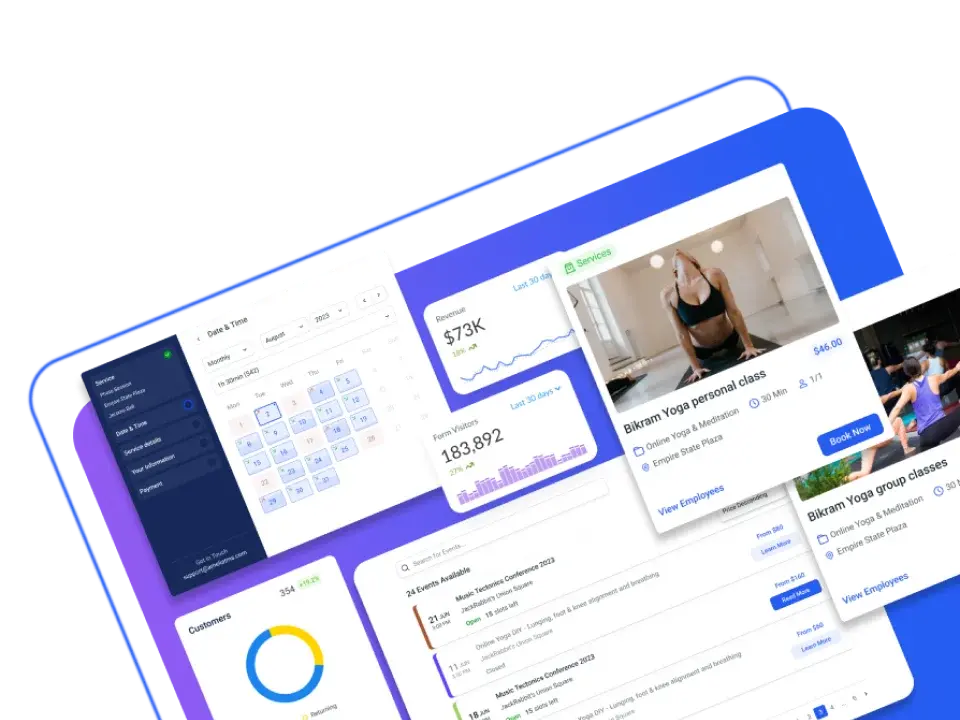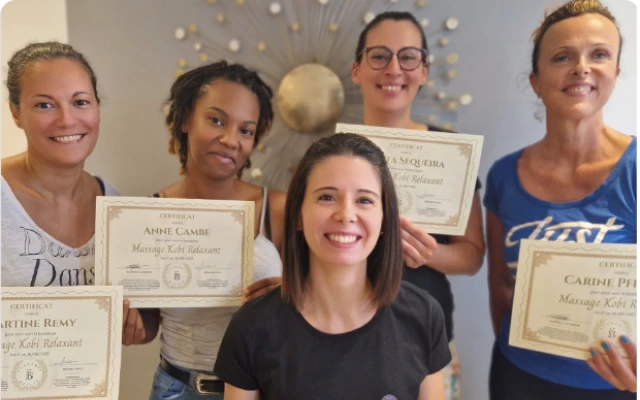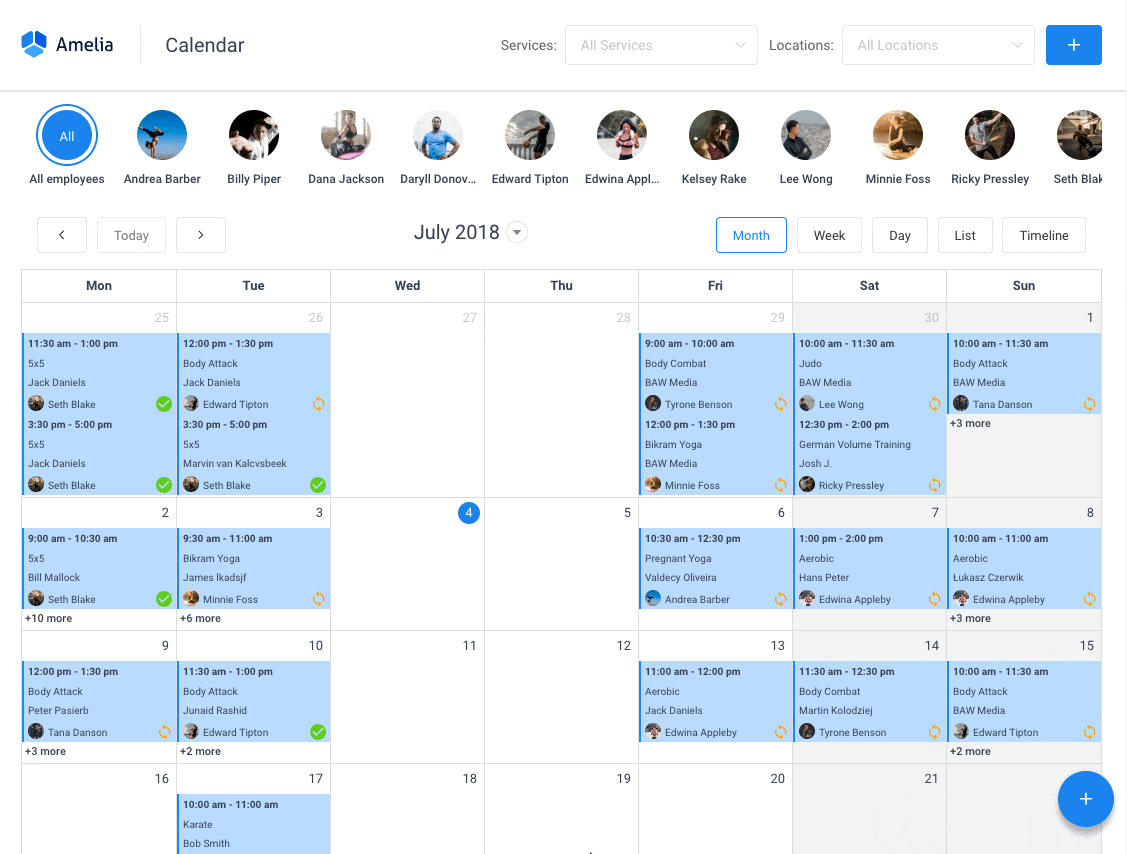Event management is a challenging business. To take up a role like this, you need more than just organizational skills. You’ll have to pay attention to details and be ready to answer people’s requests. Probably, you’ll have to put out a fire or two.
However, if you like working with people, event planning can be rewarding. And there are always tips and advice to help you improve.
This article describes 20 event management skills that planners need to organize successful activities. All those who want to make a career in this field can learn what it takes to be their best. Feel free to discover your innate abilities and how to develop new ones.
Event Management Skills That You Must Have to Be an Event Planner
People Skills
There is one thing that all events have in common: they involve people. No matter what type of event you host (in-person, livestream events, or hybrid events), people are always there. This is why your people skills play an important role.
You’ll have to consider all kinds of characters and have to do it efficiently. This includes suppliers, supervisors, sponsors, coworkers, vendors, staff, government officials, and executives. A big part of your career success involves feeling comfortable when connecting with all of these. In other words, communication skills are key in this business.
Organizational Skills
When it comes to organizational skills, event planners need to be able to prepare everything efficiently.
Every one of your events will have thousands of pieces that you must put together skillfully. Moreover, successful event managers usually work on several projects simultaneously.
You’ll have to make sure that orders, invoices, meetings, deliveries, and other tasks are executed properly and timely. Thus, one of the most important events management skills is your ability to organize. By doing this the right way, you ensure yourself a successful event.
Communication Skills
So far, it’s clear that you need to have dealings not only with clients but with other key figures in the event planning process. But communication skills go beyond this; you must also convey messages clearly.
Make sure that your instructions are explicit and direct, especially when dealing with your planning team. Also, make sure you do this appealingly.
At the moment that you accept the responsibility as an event planner, you commit. Now, you are the leader of this event and are responsible for its success. Your leadership style can make a difference if you ensure strong communication. Be aware of what your team is doing and give instructions in a personal manner. Also, you have to be open to what your coworkers have to say and be ready to support them if they have difficulties.
Time Management Skills
As you advance in your career, you’ll have more time-consuming tasks, so having some time management strategies on hand is a must. That’s why multitasking will be your best friend. Yet, it can also be your worst enemy.
There will be many situations in which you are brainstorming with a colleague and suddenly receive a call about stage design. Moreover, you have to meet lots of deadlines. The event date is set and you are responsible for everything being ready on time.
Such a situation can be a one-way ticket to anxiety and stress, or it can be a scenario of a successful event. It all depends on your time management skills.
Networking Savviness
The best event planners are those who can create a network. Be sure to make contact with different professionals in the event planning business.
Once you have a reliable network, your projects will run more smoothly. Don’t forget that they can also refer you to new clients.
Understanding of Events
At the risk of pointing out the obvious, event planners must know how the event industry works.
Your event planning skills will not be complete until you achieve this knowledge. Also, it helps if you know how to set up a request for proposal (RFP) or a floor plan. Contract review and data analytics are also important event management skills.
More than businesspeople, event professionals are artists: they need to find creative solutions. Also, it helps to understand what’s realistic and what’s not.
Finally, someone may be more naturally talented in this regard. Yet, these skills can be developed over time as well.
Research Ability
Every event planner must do research to stay up to date on the latest news in the industry. Resources, tools, and event-related aspects are worth considering.
Nowadays, this information is easy to access online through a search engine. Yet, the key is to find the right piece of data amid the ocean of information available. This depends solely on the organizer’s research skills.
Good researchers will be able to find accurate information quickly. This includes last-minute restrictions, such as capacity limits or entrance conditions, that governments may apply.
Client-oriented Service
Rule number one for all event managers is “the client comes first.” Always keep in mind that you’re organizing the client’s event, hence, you must prioritize their vision. Even if you disagree with one decision, you must put their needs before yours. Also, you need to consider factors such as budget.
Remember that amiability is a big plus. Use expressions such as “It’s my pleasure,” “Let me see what we can do,” or “Absolutely.” With this approach, you can reassure your client’s confidence and lower their anxiety.
Problem-solving Skills
If you’re wondering what pays off in this industry, the answer is problem-solving skills.
It’s impossible to imagine an event without problems, and you must solve them with a cool head. Being an event manager is more than placing sticky notes and giving a few instructions. Most of the time, organizers must make difficult decisions.
There will be unforeseen situations that you have to resolve calmly and effectively. From keeping the audience entertained while the keynote speaker is stuck in traffic, to finding a new provider at the last minute, you must be ready for everything.
All in all, decision-making skills and the ability to solve problems will be your best allies.
Learn to Delegate
We all want to be in control, however, taking care of everything yourself is not the best strategy.
There’s a limit as to what a person can do, so you have to learn to delegate. Especially when planning large events, managers need to trust their team.
Although this is not something you build overnight, it’s worth considering. Having a solid staff that you can rely on is a big plus.
Ability to Have Difficult Conversations
Probably, at some point, you’ll have to face difficult situations. Giving constructive feedback or firing someone are not easy things to do. When you find yourself in this situation, you need to handle it well.
If you want to run successful events, you will have to make difficult decisions like removing a team member or reassigning a task.
Your leadership skills depend on how you approach such a scenario.
Be Resilient and Flexible
Event management is not about a clear set of tasks. It’s important to understand that responsibilities change, and you need to adapt to each situation. A big part of your job can involve anything from putting out fires to making decisive phone calls, and you need to do this as efficiently as possible.
Your performance in those cases must be impeccable, and you must remain calm. That way, you can go back to running the show in no time.
Having a checklist is important, but you need to be able to move away from it. If things deviate from your planning process, you need to respond. Otherwise, the event will suffer.
Finally, keep in mind that your way of dealing with this will define your reputation as an event manager.
Negotiation Skills and Budget Management
Bargaining is an important part of the job. Most of the time, you’ll have to work on a budget, and your negotiation skills may save the day. When booking a place or negotiating a contract, you want to get the best price so that you can stretch the budget.
But how do you do this? While some people are innate negotiators, others may need practice. All in all, it’s a mixture of tact, confidence, and preparation. Forecasting and expense control are vital factors. Experience with invoicing is also helpful.
Decision-making Skills
This is a deeper insight into one of the previous points. If you make a decision as an event planner, you must analyze the situation carefully and consider all possible outcomes. Since this will be an important part of your daily routine, you must put a lot of consideration into it.
Moreover, it’s not only about deciding fast; your solutions must be viable. Work on your decision-making skills and you’ll be able to come up with better solutions each time.
Develop Your Creativity
A creative planner is vital for a successful event. Also, the ability to engage clients and attendees is crucial. Booking a venue, hiring caterers, and finding the right entertainment options are not enough. This is where creativity becomes essential.
If you want people to remember your events, make sure you transform your ideas into unforgettable experiences.
Although this is not a hard skill, it’s an ability that you can acquire with practice and dedication.
Be a Good Leader
A true leader brings people together. Rather than giving orders, try to engage employees and inspire them to give their best.
Vendors, volunteers, and team members must work together for a common goal. Also, they need to feel that what they do matters.
With your style, try to make people feel important and lead them towards success. Even if you have to be tough sometimes, make sure this is not your natural way of communicating with others in the work environment.
Love What You Do
Although it may sound like a cliché, passion is still an important part of the equation. An event manager must put passion into everything they do and work enthusiastically. Self-motivation is key at this point.
Also, the feeling of pride after creating a successful event can be what makes your engine start.
Nobody doubts that event management is one of the most stressful jobs, and this is exactly why you need that extra spark. Motivation will help you overcome challenges and keep calm when things get difficult. Work with genuine passion, and you’ll see the results.
This approach will also lead to higher creativity and give you a sense of fulfillment.
Proficiency in Technology
In our day, technology proficiency is not an option. Keep in mind that technology is a manager’s best friend.
Software and apps can simplify processes and improve your efficiency, so, don’t be afraid to use them. Even if you don’t know the solution inside-out, make sure you understand what advantages it can provide.
In line with this, staying on top of the latest trends can also be very helpful.
Sell more event tickets with the right tool for the job
Staying organized has never been easier.
You can now manage your business and grow your brand with a single, powerful WordPress booking plugin that keeps all of your appointments or event bookings in line, your clients organized and your business booming.
Amelia is a great events plugin for business owners who need to streamline their booking experience both for their staff and their clients.
Amelia handles everything for you, even sending automated email or SMS reminders to your clients. No-shows? Not anymore!
The Amelia WordPress booking plugin adapts to different industries for a blissful online booking experience and employee management.
Want to know more? Check out Amelia’s awesome features to see what you are missing.
Risk Management Skills
Safety must be one of your top priorities. It’s likely that event attendees, speakers, or sponsors don’t see the efforts that you put in this area. However, you should never cut down on safety.
Safety is important for every person involved in the planning process and for attendees as well. Whether it is about on-site safety measures or client data protection, make sure your event is safe.
Also, stay updated on healthcare regulations and government safety measures.
Keep Calm
Even the best planning has its weak points. In other words, you cannot predict all the possible issues that may arise.
If an incident jeopardizes your event, make sure to stay calm. Only by this will you be able to find the best solution.
FAQs about event management skills
1. What are the essential skills required for successful event management?
Combining organizational, communication, leadership, and problem-solving abilities are necessary for effective event management.
Additionally necessary are a keen eye for detail, strong time management skills, and budgeting prowess. Event organizers must also have the ability to react to unforeseen changes and perform well under pressure.
2. How do you manage budgets effectively when organizing an event?
Event organizers must properly plan and allocate finances if they are to efficiently manage budgets. This entails putting together a comprehensive budget for the occasion, keeping tabs on expenditures, haggling with vendors, and figuring out where costs may be cut.
It’s critical to stay within the budget, and event managers must be prepared to make changes as needed to make sure the event doesn’t go over.
3. What is the most important aspect of event planning?
Understanding participants’ needs and expectations is the most crucial part of event preparation. Target audiences’ tastes, interests, and habits are taken into consideration while planning successful events. Event organizers may create a memorable experience that meets or surpasses expectations by having a full grasp of the guests.
4. What techniques do you use to manage time effectively when organizing an event?
Planning an event requires effective time management. In order to make sure that every component of the event is planned and executed on time, successful event managers prioritize tasks, set deadlines, and prepare timetables. Event organizers may successfully manage their time and stay on task by using tools like calendars and to-do lists.
5. How do you negotiate contracts with vendors and suppliers for an event?
When negotiating with suppliers and vendors, effective negotiation skills are crucial. Researching reasonable costs and negotiating for the best deals is important for event organizers. Building solid connections with vendors and suppliers also requires effective communication since it enables honest discussion during the negotiation process.
6. How do you handle unexpected challenges or problems during an event?
Event managers need to be equipped to deal with unforeseen difficulties that occur during an event. Quick thinking, problem-solving abilities, and the capacity for composure under duress are required for this.
Event organizers should be proactive in detecting and resolving issues before they turn into significant difficulties and have a contingency plan in place to manage any hazards.
7. How do you create a memorable experience for attendees at an event?
It takes meticulous planning, close attention to detail, and a focus on the guest experience to produce an event that attendees will remember.
To give visitors an immersive and interesting experience, event organizers need to take into account elements like the location, entertainment, catering, and general atmosphere. Interactivity and personalization are also essential for producing a memorable event that stands out from the competition.
8. What is your approach to managing and leading a team during an event?
Clear communication, delegation, and an emphasis on team morale are necessary for managing and leading a team throughout an event.
Event coordinators should promote a culture of cooperation and support where team members feel empowered to own their responsibilities. Effective team management also requires regular feedback, appreciation of individual efforts, and timely resolution of any problems.
9. How do you manage logistics, such as transportation and accommodation, for attendees?
For large-scale events where guests will be traveling from many regions, logistics management is a crucial component of event planning.
To ensure that participants have a simple and hassle-free experience, event managers should plan and coordinate travel, lodging, and other logistical elements. It’s crucial to have open lines of communication with participants in order to inform them and handle any difficulties that may occur.
10. How do you measure the success of an event and gather feedback from attendees?
Prior to the event, it is important to establish specific goals and key performance indicators (KPIs) in order to assess the event’s success.
Event organisers should collect feedback from participants via questionnaires and other channels after the event to gauge satisfaction and pinpoint areas for improvement.
Event organizers can assess the overall success of the event and plan successful future events by analyzing data and indicators including attendance rates, income earned, and social media participation.
To identify strengths and flaws and make adjustments to enhance future guest experiences, event managers should use the feedback and data gathered.
Final Thoughts on Event Management Skills
This list contains 20 event management skills that every good planner should have. Some of them will come to you naturally, but others need nurturing and development.
Keep these points in mind when planning events, and you’ll see good results. Everything is possible with passion and dedication.
If you enjoyed reading this article about event management skills, you should check out this one with event WordPress themes.
We also wrote about a few related subjects like setting up a WooCommerce events calendar, event planning tips, event statistics, marketing strategies for ticket sales maximization, and hybrid event ideas.
Not only that, but we also created articles about virtual event ideas, virtual event statistics, how to get sponsors for an event, tech conferences, and the most-watched sporting event.



